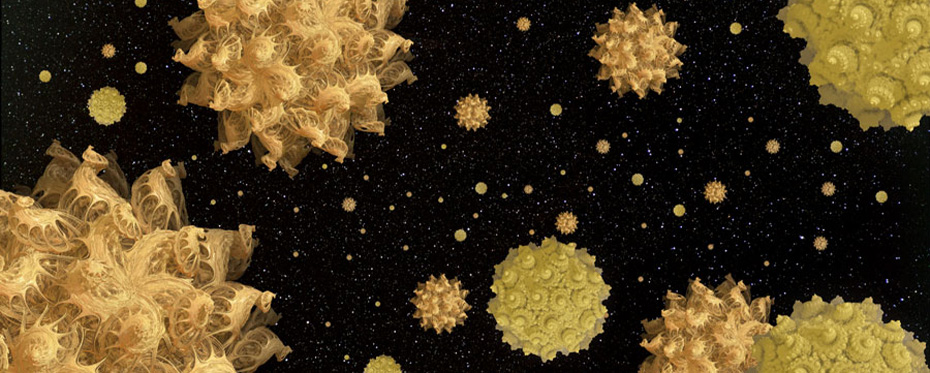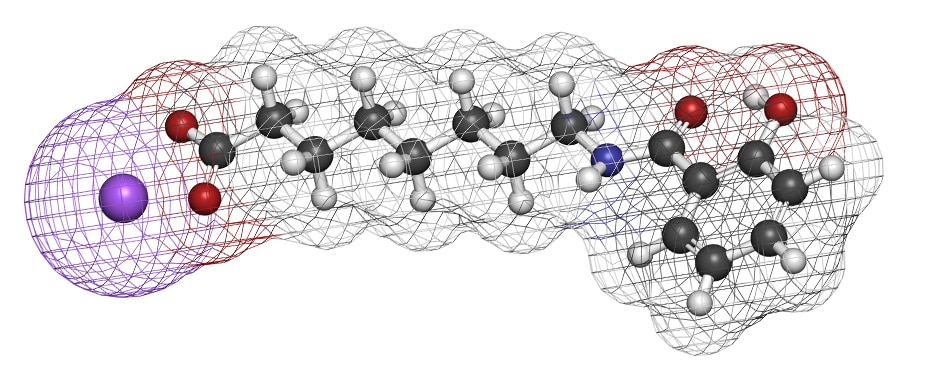Tag: Ireland
Back to the future: The Secret of Kells brings the past to life

It’s tempting to think that our global, multimedia age is the most multicultural and visually literate in history. However, a new study by Lisabeth Buchelt, of the University of Nebraska—Omaha probes the relationship between a contemporary Irish animated film and the 1,200-year-old masterpiece of Celtic art that inspired it. She finds that the modern age is not the first to […]
Read More… from Back to the future: The Secret of Kells brings the past to life
DNA molecular scissors as new cancer chemotherapeutics

The discovery of efficient new metallodrugs with minimal side effects is urgently needed in cancer medicine. Associate Professor Andrew Kellett and Dr Creina Slator, Dublin City University, Ireland, have employed ‘click chemistry’ to generate new copper DNA molecular scissors with anticancer and gene editing properties. Their molecules have coordinated metal centres and mimic the action of natural products that cause […]
Read More… from DNA molecular scissors as new cancer chemotherapeutics
Inclusion at a crossroads: Special education in Ireland

Special education in Ireland has changed dramatically in recent years, as policymakers and educators have sought to improve learning for students with additional learning needs and/or disabilities. Following Ireland’s ratification of the UN Convention on the Rights of Persons with Disabilities (UNCRPD), inclusive education experts Joanne Banks and Michael Shevlin of Trinity College, Dublin, argue that inclusion is at a […]
Read More… from Inclusion at a crossroads: Special education in Ireland
The role of digital health in paediatric obesity treatment

The prevalence of obesity in children and adolescents is at high levels. Novel approaches are needed to provide effective care to this population and to minimise the risks of long-term health complications. Digital health has progressed hugely over recent years and offers an attractive option for delivering paediatric weight management interventions. Louise Tully, RCSI University of Medicine and Health Sciences […]
Read More… from The role of digital health in paediatric obesity treatment
Improving product quality in pharmaceutical ball milling

Ball milling is used in the pharmaceutical industry to reduce the size of particulate material such as pharmaceutical granules. Dr Alexander Krok and Dr Sandra Lenihan from Munster Technological University, Ireland, have developed a computational approach to achieve optimal, energy-efficient size reduction in ball milling resulting in the production of high-quality particulate material (i.e. granules) of homogeneous shape and size. […]
Read More… from Improving product quality in pharmaceutical ball milling
Directed Panspermia: Synthetic DNA in bioforming planets

As our technological advancements continue, scientists are beginning to turn what was science fiction into reality. Concepts such as terraforming and travel between stars are becoming more achievable, giving life to the dream that one day we might colonise other planets. Directed panspermia is one method of altering a hostile, uninhabited planet to a more Earth-like environment, and Cork Institute […]
Read More… from Directed Panspermia: Synthetic DNA in bioforming planets
A blended learning programme for out-of-field mathematics teaching

Out-of-field teaching is an international phenomenon with particular prevalence in the teaching of mathematics. Professor Merrilyn Goos, Professor of STEM Education at the University of Limerick, and Director of EPI*STEM describes the design features of a national mathematics teacher professional development programme. Employing three boundary crossing frameworks exposes the signature features of this part-time graduate programme’s blended learning design, and […]
Read More… from A blended learning programme for out-of-field mathematics teaching
Nanotechnology provides new methods for oral delivery of peptides

One aspect of successful drug development is efficient delivery to affected organs. Most drugs are taken by mouth, travel to the intestines, are absorbed into the bloodstream, and circulated to organs of interest. However, a class of potent drugs known as peptides cannot withstand this abrasive route and are directly injected into veins, under the skin, or into muscles. Injections […]
Read More… from Nanotechnology provides new methods for oral delivery of peptides